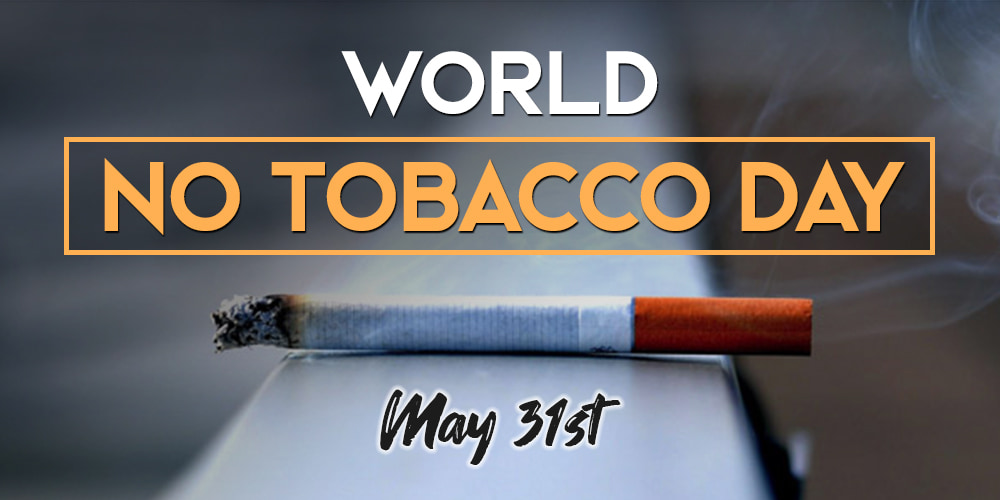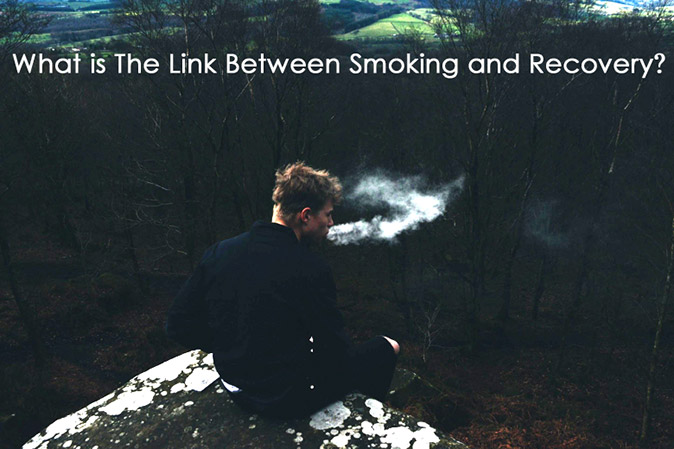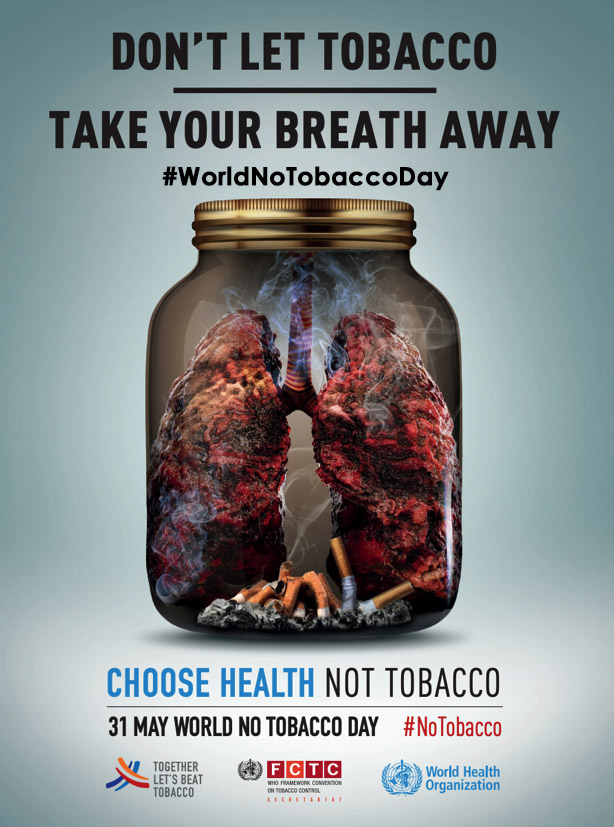
World No Tobacco Day is recognized every year on May 31 to bring attention to the fact that cigarettes and other nicotine products are detrimental to our health and recovery.
Smoking and tobacco use is highly addictive, and a main cause of many types of preventable deaths around the world.
Stop Smoking For World No Tobacco Day
For anyone looking to give up a smoking addiction and start on a new path to a healthier life, there’s no time like the present.
World No Tobacco Day on May 31 is a yearly initiative led by the World Health Organization that seeks to spread awareness about the negative impact of tobacco on people’s health and well being.
Nicotine is a very powerful addictive substance found in cigarettes, eCigarette vape pens, and smokeless tobacco products.
Tobacco is consistently ranked as one of the top 10 worst drugs among alcohol and other addictive substances.
For teens that haven’t started using tobacco yet, it’s best to not experiment with it no matter how cool it might appear to be.
Those who have already formed a dependence or addiction to nicotine can attest to how difficult it can be to quit smoking or using tobacco.
World No Tobacco Day is chance to consider quitting and take the necessary steps to at least decrease daily use and create a goal to quit altogether in the very near future.
Even though the focus is on cigarettes, it’s also a good time to learn how to quit vaping all substances, including nicotine and marijuana.
With marijuana legalization increasing around the world, it has given rise to addiction and the need for recovery programs.

What is the Link Between Smoking and Recovery?
Smoking cigarettes during recovery is incredibly common. In fact, a survey conducted of Alcoholics Anonymous participants in 2007 and published in the National Library of Medicine showed nearly 57 percent of the people smoked.
More than 78 percent of those smokers went through over a half a pack a day. These numbers are dramatically higher than the national average.
For those overcoming drug and alcohol addiction, smoking cigarettes may feel like nothing more than a bad habit vs addiction in comparison to their substance use disorder.
However, smoking is not only detrimental to overall health, it could put recovery in jeopardy too.
The Dangers of Smoking During Recovery
It was once believed that smoking helped those in recovery manage their stress and cravings, but the National Institute on Drug Abuse (NIDA) states that smoking can actually increase the risk of relapse.
Those who smoked before achieving sobriety often did so while also using drugs and alcohol, creating a familiar link between drinking and substance use.
If this is the case, smoking while in recovery may increase cravings for drugs and alcohol, given that the two behaviors were once closely connected.
Many people continue to smoke during recovery because they don’t consider it as dangerous as other addictive drugs. In reality, smoking can be just as detrimental to a person’s health as drug and alcohol misuse.
Smoking can cause many unhealthy conditions including:
- Lung disease
- Lung cancer
- Increased risk for stroke
- Negatively affects bone health
- Serious damage to the heart
- Other types of cancer throughout the entire body
Each year, 480,000 people die in the United States as a result of cigarette smoking, according to the Centers for Disease Control (CDC). That is more deaths per year than all other substance use related deaths combined.
Another false belief about smoking in recovery is that it’s best to quit one addiction at a time. Because of this, many people seeking help for a substance use disorder continue smoking throughout their treatment.
However, quitting smoking during treatment for drug or alcohol addiction will actually benefit recovery and prevent relapse down the road.
Research has shown that quitting smoking within the first year of addiction treatment will increase the chances of remaining abstinent from drugs and alcohol.
So while it may be more challenging to quit smoking while in treatment for a substance use disorder, it’s best to quit as soon as possible.
Healthy Coping Mechanisms During Recovery and World No Tobacco Day
One of the common misconceptions about recovery is that achieving sobriety is the cure for substance use disorder. In reality, this is a vital step of a life-long journey that requires patience, commitment, and care.
When it comes to remaining in recovery, developing coping mechanisms and tools for managing stress is undeniably crucial.
But it’s important to remember that not all stress-relieving activities are healthy – especially when the goal is to achieve and maintain long-term health.
Quitting smoking isn’t easy. Not only are cigarettes and nicotine highly addictive, they’re a handy coping mechanism for stress.
Because of this, it’s essential to discover new and healthy ways to relieve stress and anxiety.
The best stress management techniques will vary depending on the individual. What might work for one person may not work for everyone, so it’s important to explore different options in order to discover the best ways to keep daily stress at bay.
Here are some healthy ways to reduce stress:
Regular exercise has shown to be one of the most effective ways to naturally decrease the symptoms of stress, anxiety, and depression. Three or four days of walking outside for 30 minutes is all it takes for many people to feel positive effects.
Practicing meditation and mindfulness daily can calm the mind and reduce stress and improve mood.
Yoga offers the dual benefit of improving both physical and mental health while decreasing stress.
Avoiding caffeine helps reduce stressful jitters and feeling sluggish late in the day.
There are many benefits of quitting sugar and eating a healthier diet that properly fuels the body and brain to enhance focus and decrease stress.

Participate in World No Tobacco Day
Get involved in World No Tobacco Day this year by abstaining from using tobacco products for 24 hours, and encouraging your friends and family to do the same.
Spread the word by using the hashtag #WorldNoTobaccoDay on social media and make a meaningful impact by participating in activities, meetings, and attending educational programming.
If you’re ready to give up smoking, follow these tips from the American Cancer Society on how to quit and make World No Tobacco Day the first day of your journey toward a cigarette-free life.
Related Posts
- When Did the War on Drugs Start?
Many drugs that are currently illegal, such as opium, cocaine, and psychedelic drugs, have been…
- Long Term Side Effects of Drugs and Addiction
There's a lengthy list of long-term side effects of drugs and addiction that affect both…
- Addiction and Depression - Similar Disorders But Fundamentally Different
Addiction and depression, it's much like the age-old question of the chicken and the egg.…
